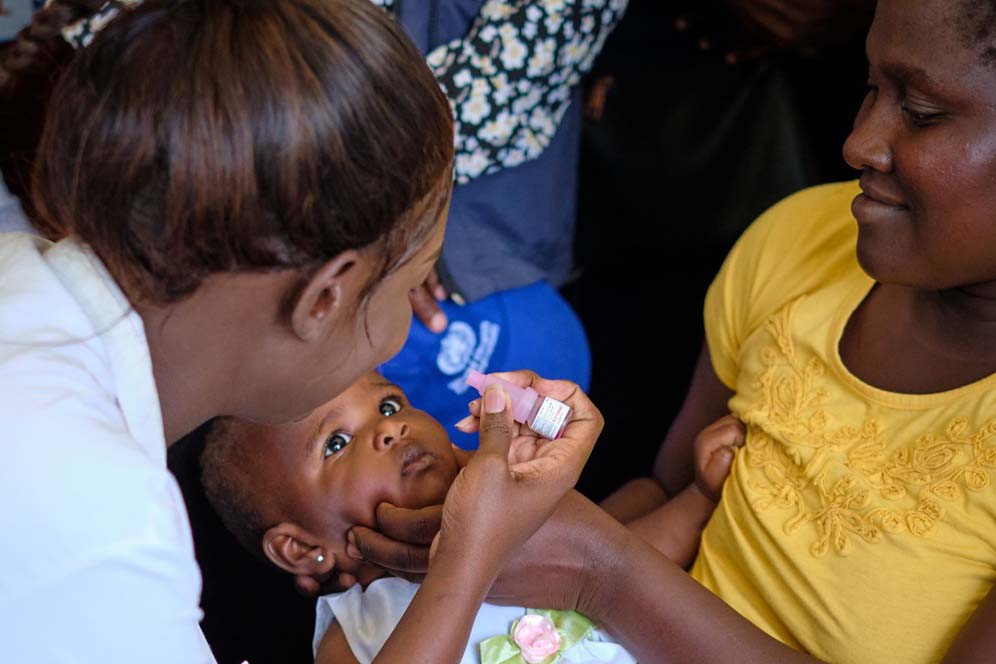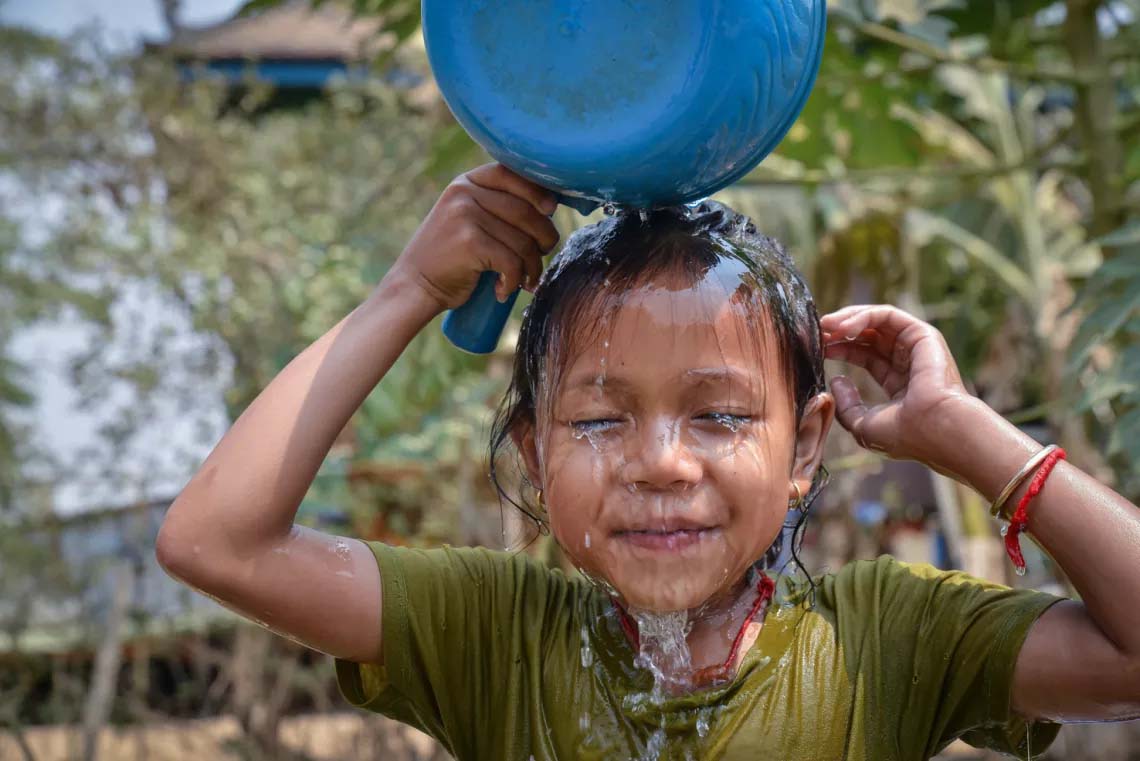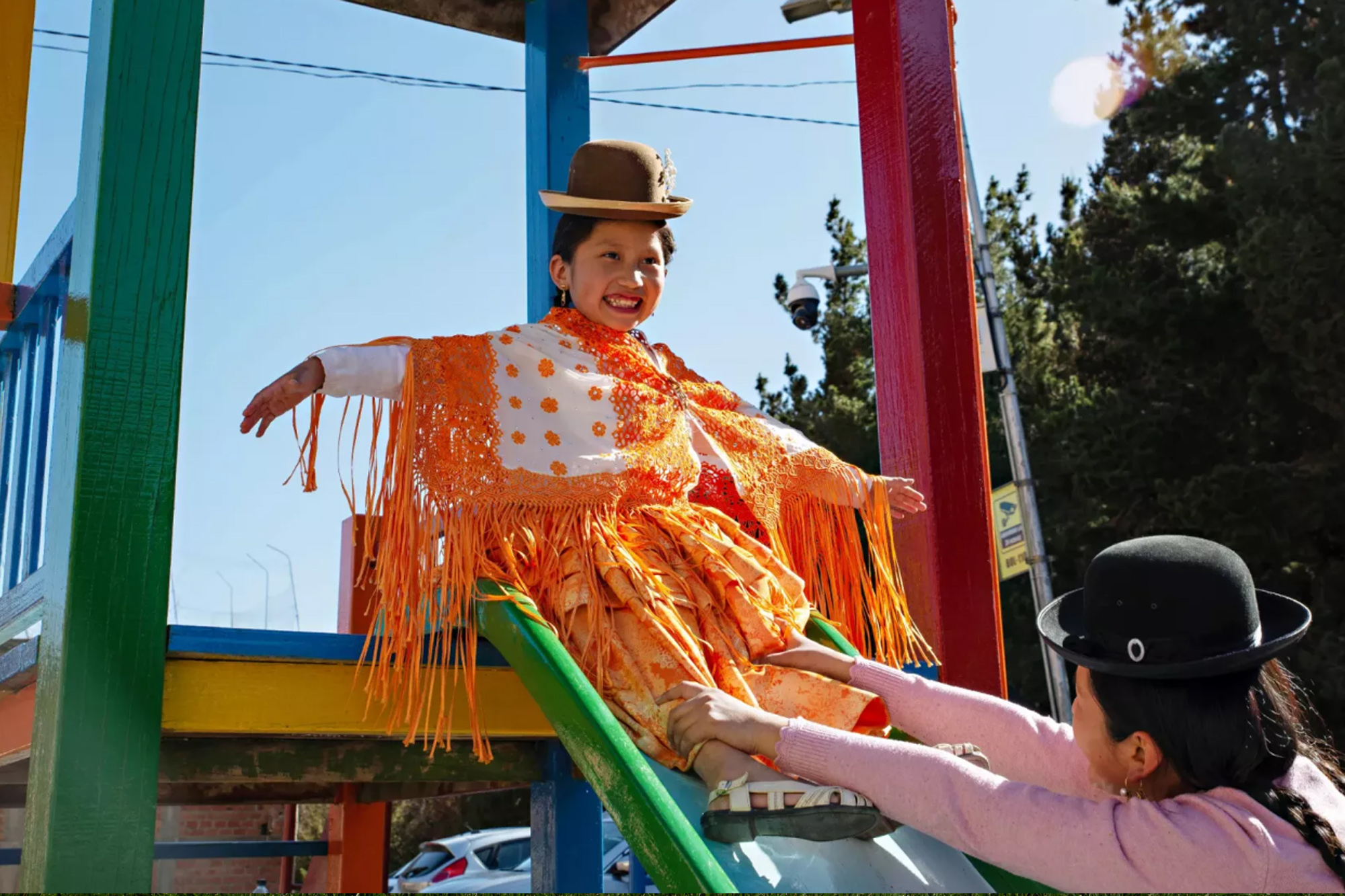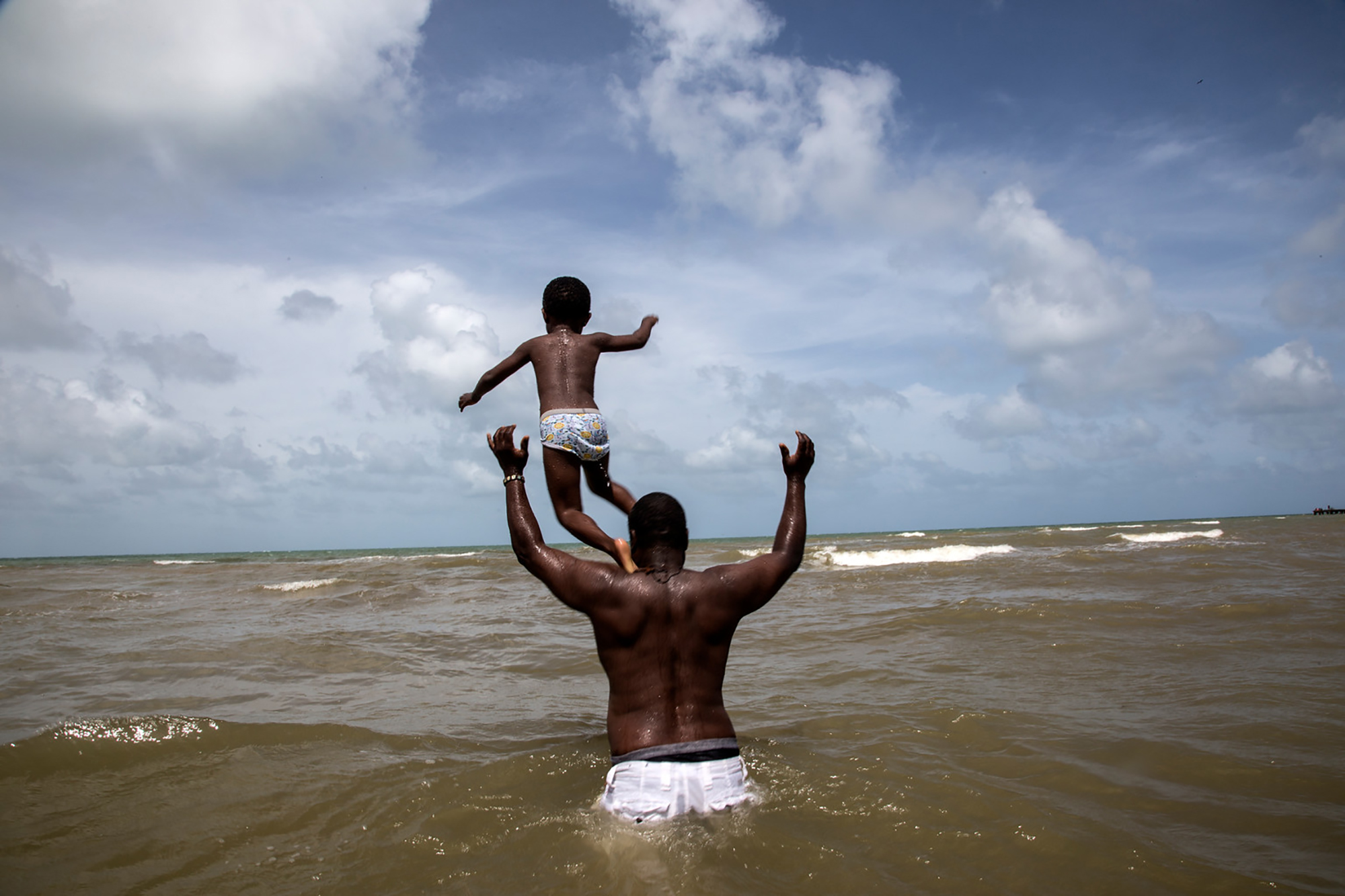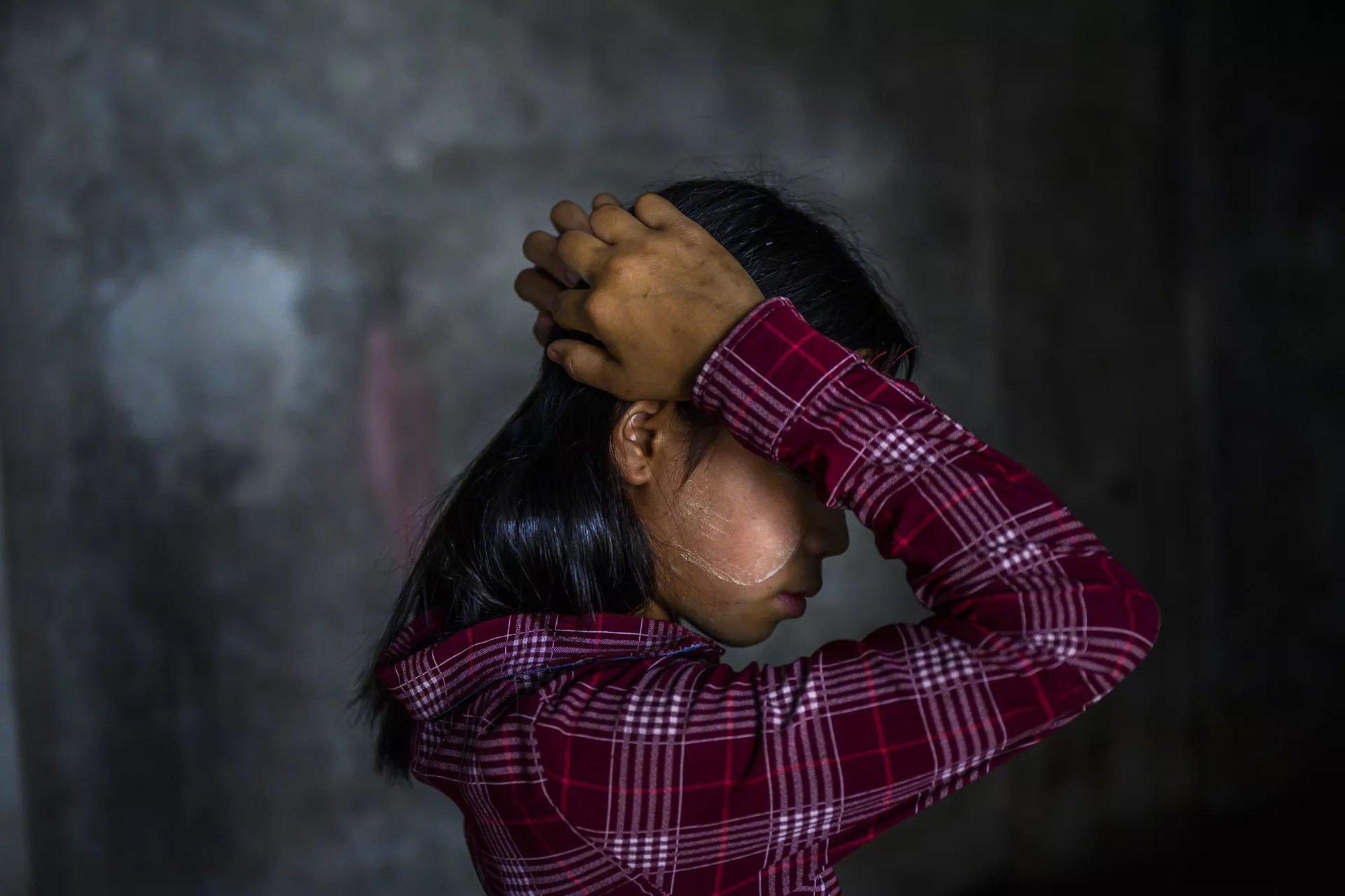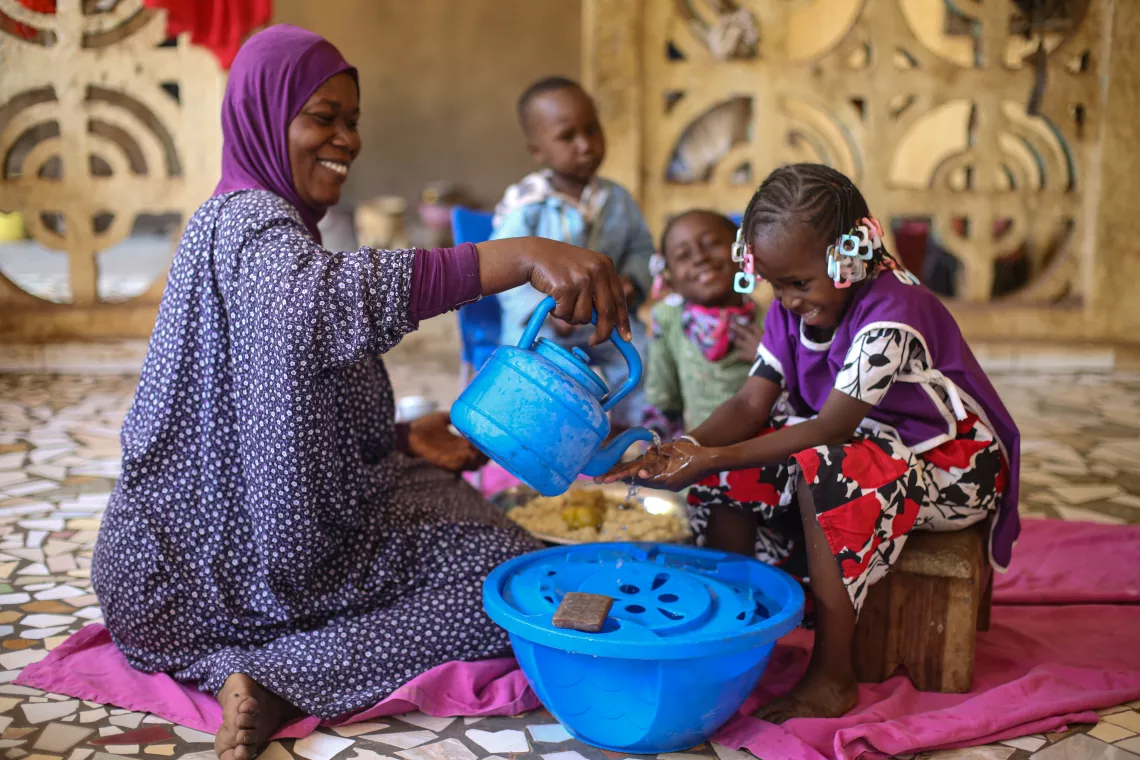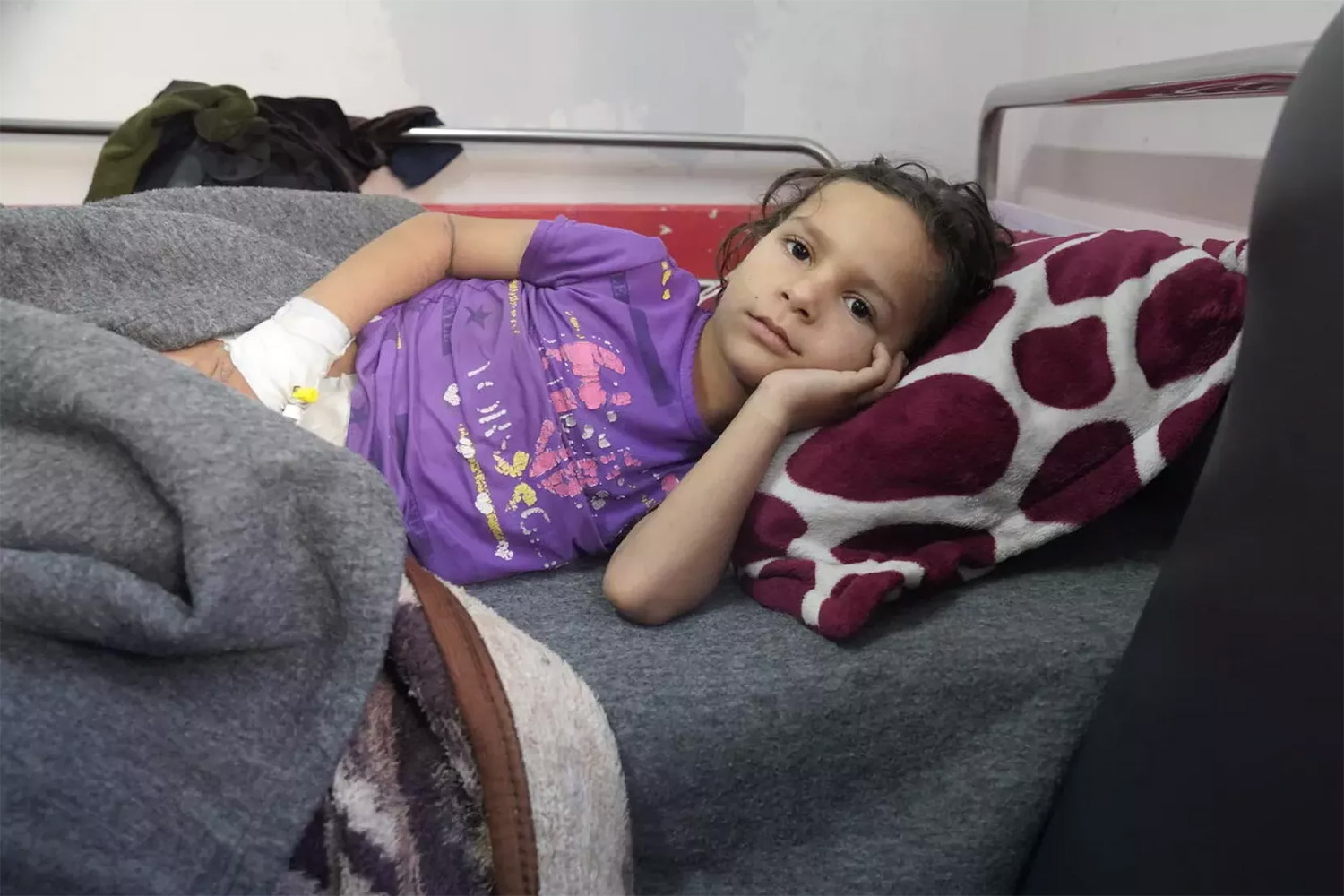Global childhood immunization coverage stalled in 2023, leaving 2.7 million additional children un- and under-vaccinated compared to pre-pandemic levels in 2019, according to data published by the World Health Organization (WHO) and UNICEF. The latest WHO and UNICEF estimates of national immunization coverage – which provide the world’s largest and most comprehensive dataset on immunization trends for vaccinations against 14 diseases – underscore the need for ongoing catch-up, recovery and system-strengthening efforts. More than half of unvaccinated children live in the 31 countries with fragile, conflict-affected and vulnerable settings, where children are especially vulnerable to preventable diseases.
UNICEF
Climate change is raising global temperatures and causing historic heat waves. More countries are facing hotter days more frequently, with more intensity and for longer periods. The heat stress caused by exposure to heat waves can negatively affect health and well-being, especially for infants and young children. As heat waves become more frequent and last longer, the need for urgent action grows stronger. Preparedness can protect vulnerable populations, especially children. UNICEF encourages governments and partners to join the Children’s Environmental Health Collaborative.
UNICEF's Goodwill Ambassador Orlando Bloom reflects on the greatest joy of his life: being a parent.
On the surface, play may seem like it’s all about having fun, but it’s far more than that for babies and toddlers. It’s about learning and building important life skills – from problem solving to expressing ideas – and strengthening the bond between you both. UNICEF teamed up with the LEGO Foundation to explore the science behind how you can help your child grow and develop during these playful interactions. The good news is that children don't need expensive toys to play and learn. Here are 7 toys you can make at home to help get you started and here is how you can turn everyday routines into learning opportunities.
The importance of play for children’s development is recognized by the UN Convention on the Rights of the Child, which sets out “the right of the child to rest and leisure, to engage in play and recreational activities”. The United Nations General Assembly established 11 June as the International Day of Play to champion and protect this right. On this day, UNICEF called for this right to be fulfilled for every child.
Are you concerned about how much time your teen is spending on screens?
Refugee camps force children to mature prematurely, stripping away their childhood and thrusting them into harsh realities.
Observed every 1 June, the Global Day of Parents provides an opportunity to appreciate all parents for their selfless commitment to their children. Throughout June, the United Nations Children’s Fund (UNICEF) will advocate for expert advice and support for parents, encompassing a broad range of topics from the scientific foundations of play to engaging activities for the entire family. Recognizing the increasing prevalence of online play, the agency will also provide parents with comprehensive guides and detailed explanations to ensure their children's online experiences are safe and positive.
In 2023, the United Nations International Children's Emergency Fund (UNICEF) provided mine risk prevention and response services, including survivor assistance, to nearly 140,000 individuals, among them children, throughout Myanmar. Efforts to scale up mine risk education sessions, supported by pamphlets and handbooks in local languages, are underway in conflict zones. The escalating deployment of landmines in Myanmar poses a grave danger to children's safety and well-being. Each detonation not only ends lives but also destroys aspirations and strips away the innocence of childhood. It is crucial for all involved parties to collaborate in safeguarding children from the severe consequences of landmines.
Vaccines have saved six lives a minute. Every minute, for five decades. Speak up and tell leaders it’s time for immunization for all.
Climate change is causing more frequent and intense heat waves worldwide, which negatively impact the health and well-being of vulnerable populations, particularly children. UNICEF and partners urge governments to take urgent action and ensure that frontline health workers are trained to recognize and treat heat stress, health facilities are equipped to cool heat victims, and healthcare systems are connected to meteorological services in high-heat regions. Additionally, health facilities should have cool public spaces for people to safely seek refuge during heat waves.
UNICEF Goodwill Ambassador Liam Neeson is urging for an immediate humanitarian ceasefire in Gaza, emphasizing the critical need to address children's urgent needs. Neeson highlights protection, safe access to life-saving supplies and services, and uninterrupted funding as essential elements in this endeavor. Expressing deep concern over the devastating toll on children's lives amidst the ongoing conflict, Neeson stresses the urgency of ending the fighting to mitigate the humanitarian catastrophe.
The escalation of hostilities in the Gaza Strip is having a catastrophic impact on children and families. Around 1.7 million people in the Gaza Strip are estimated to have been internally displaced – half of them children.
Even wars have rules. No child should be cut off from essential services, nor fall from the reach of humanitarian hands.
Fadimata, a 4-year-old advocate for promoting good nutrition and hygiene practices, through initiatives by UNICEF, is spreading awareness in her local community.
Months of escalating conflict have turned the Gaza Strip into the most dangerous place in the world to be a child. Every child across Gaza has been exposed to deeply distressing events, witnessing horrors that no child should. Around 1.7 million people are estimated to have been internally displaced by the violence, half of them children. Families desperately searching for shelter are being pushed into tiny, overcrowded areas without adequate water, food, or protection. The little food that is available isn’t enough to meet children’s nutritional needs. As a result, thousands of children are malnourished and sick. The lasting impact of this violence will be felt for generations to come.

